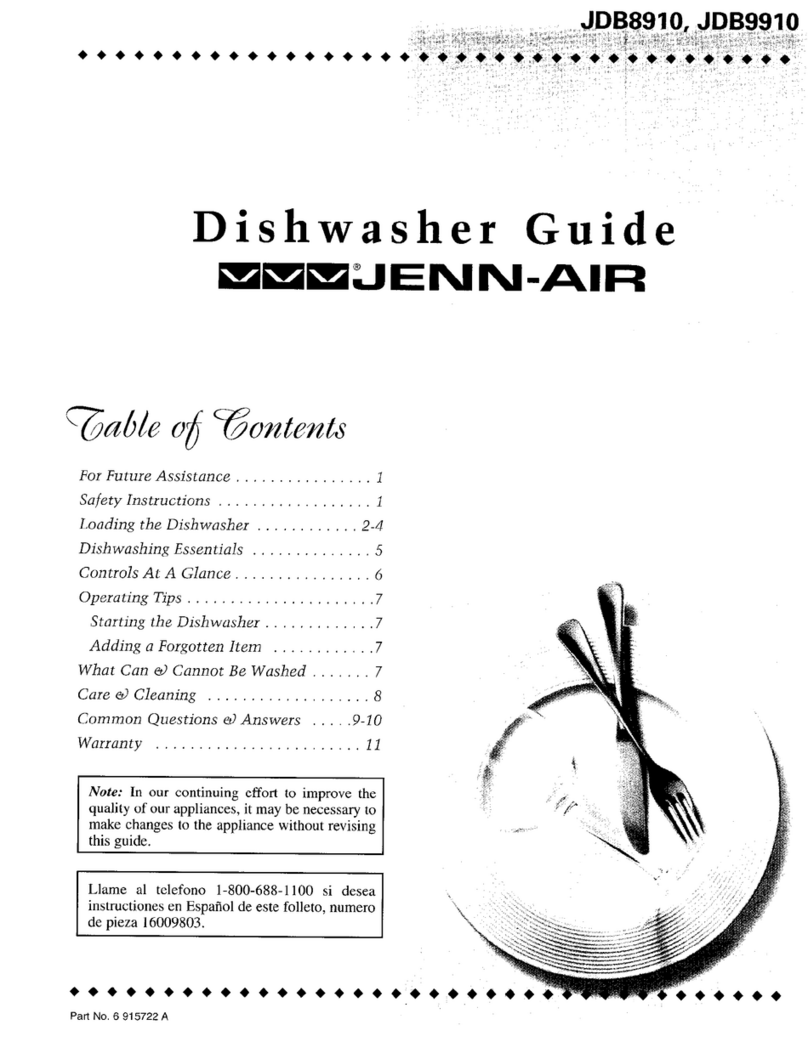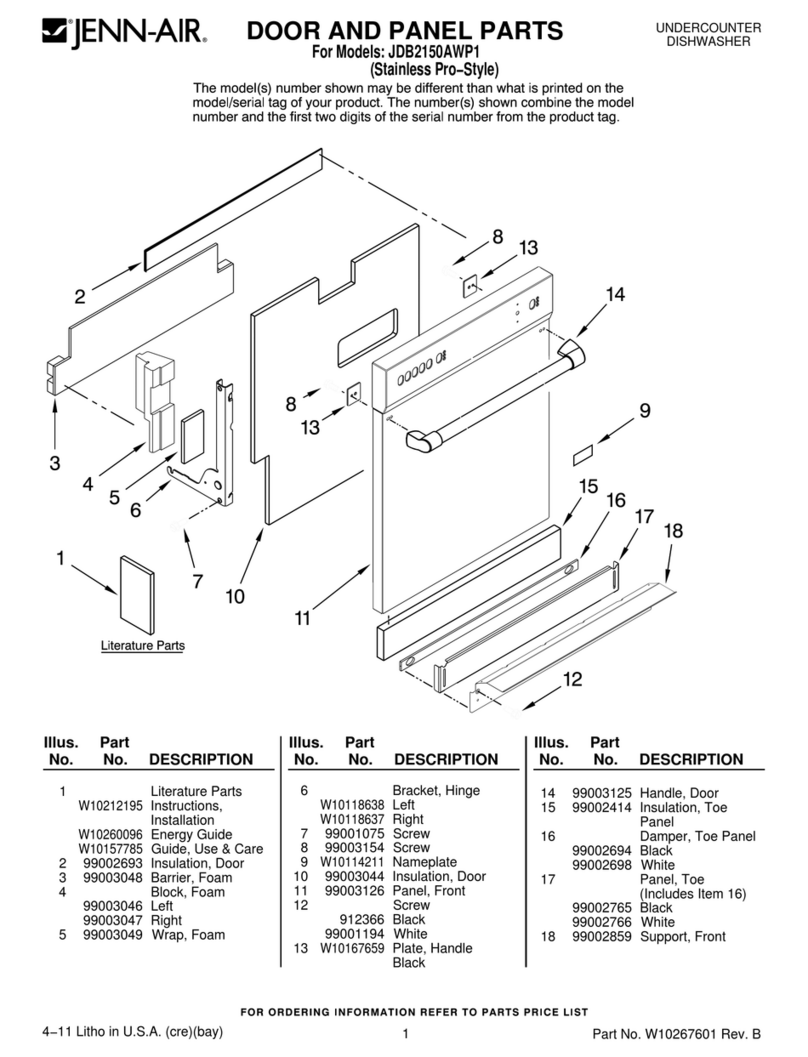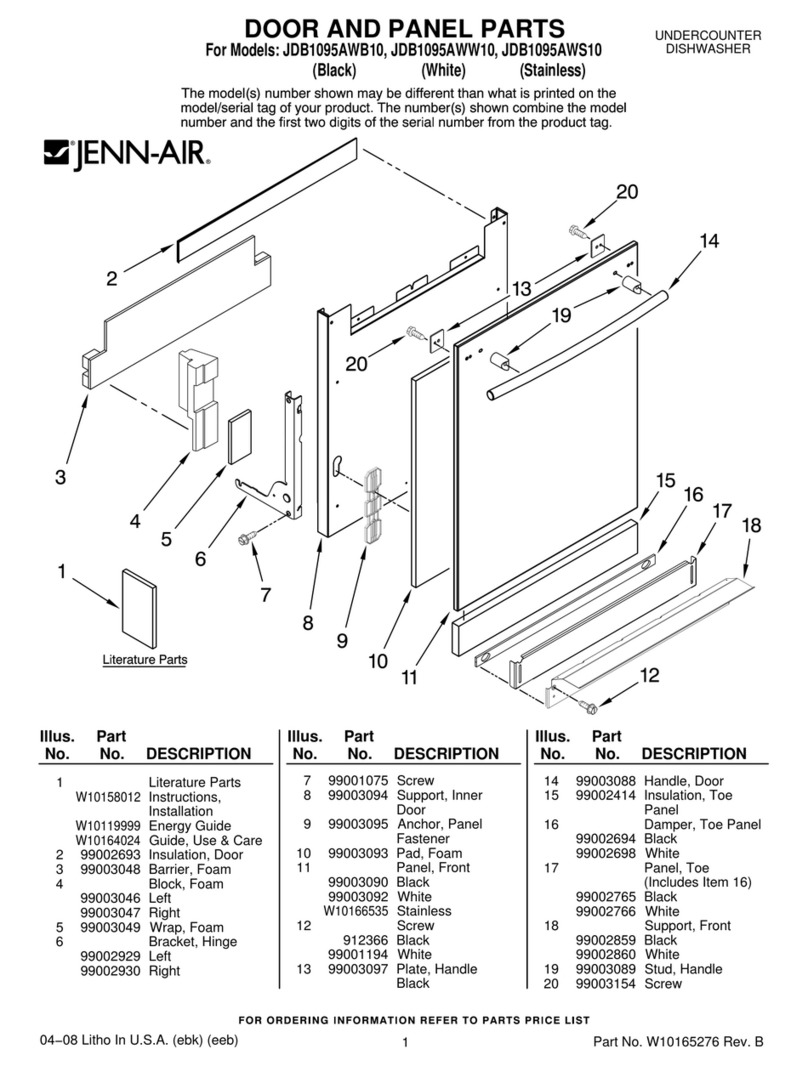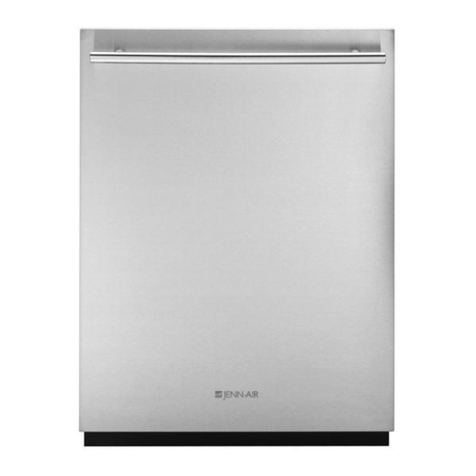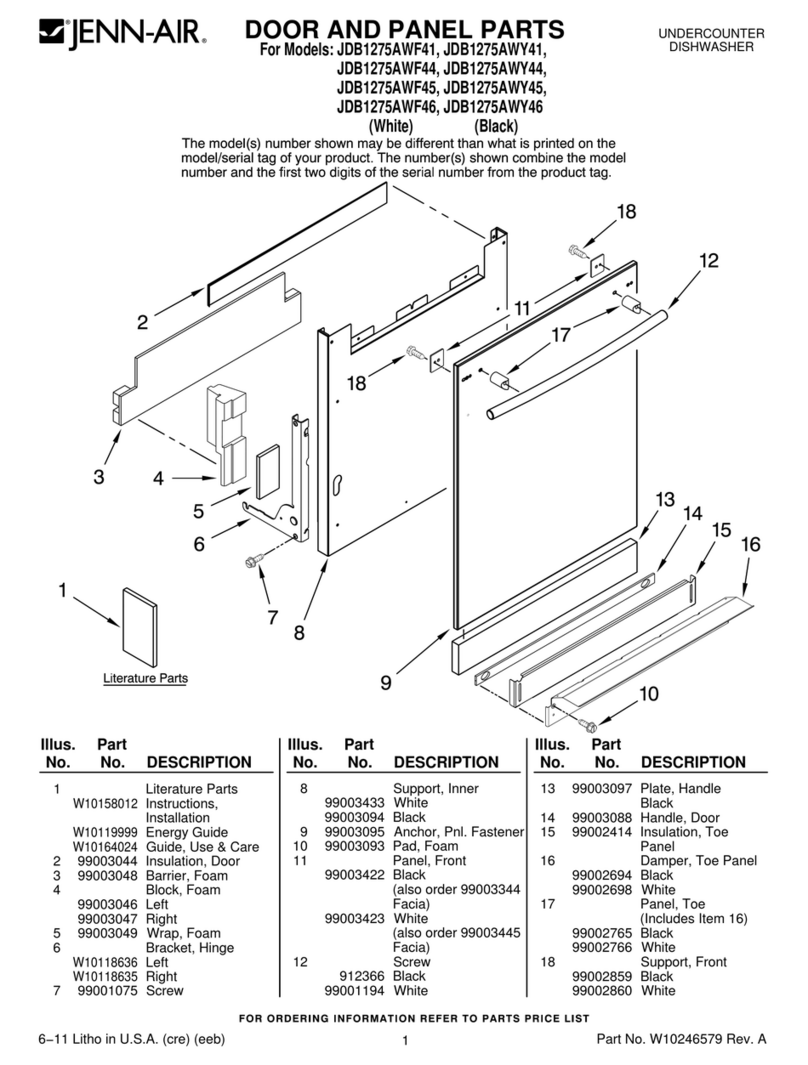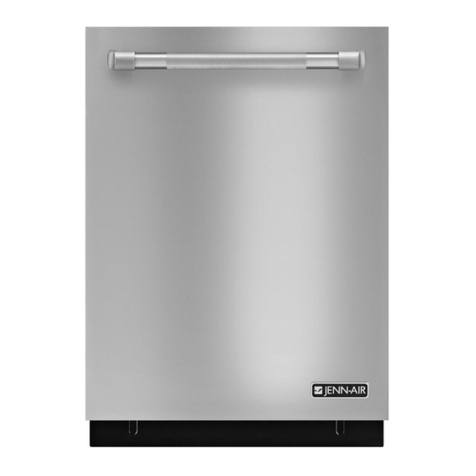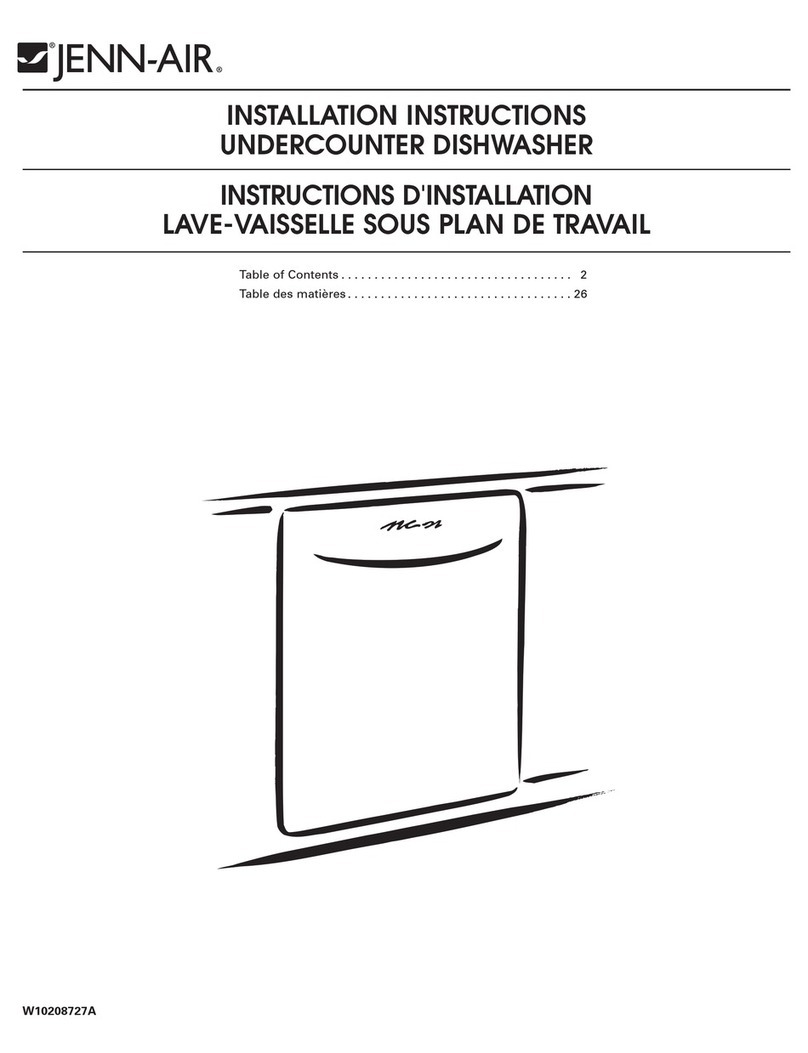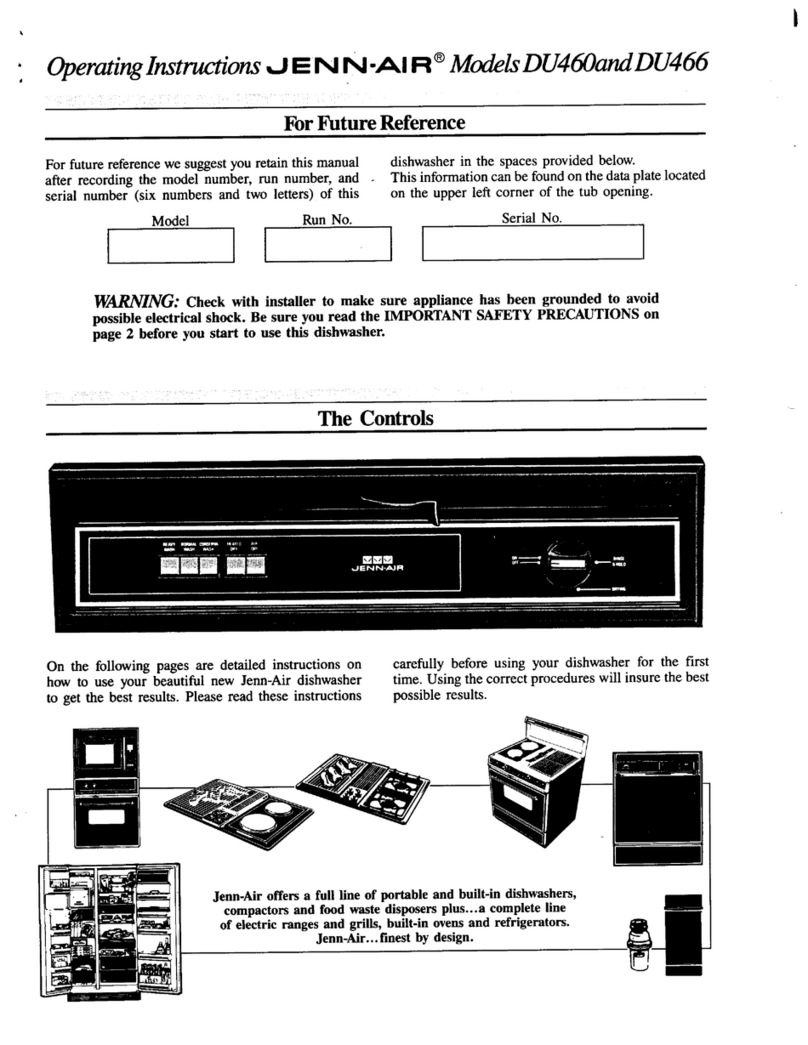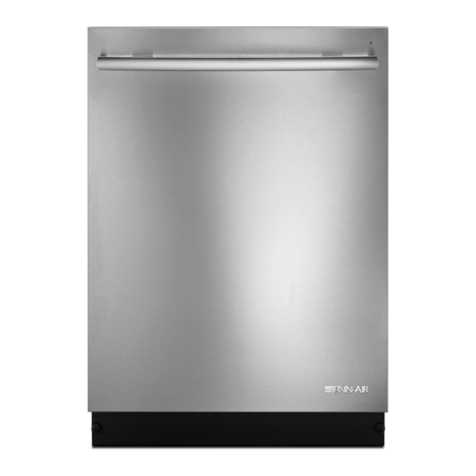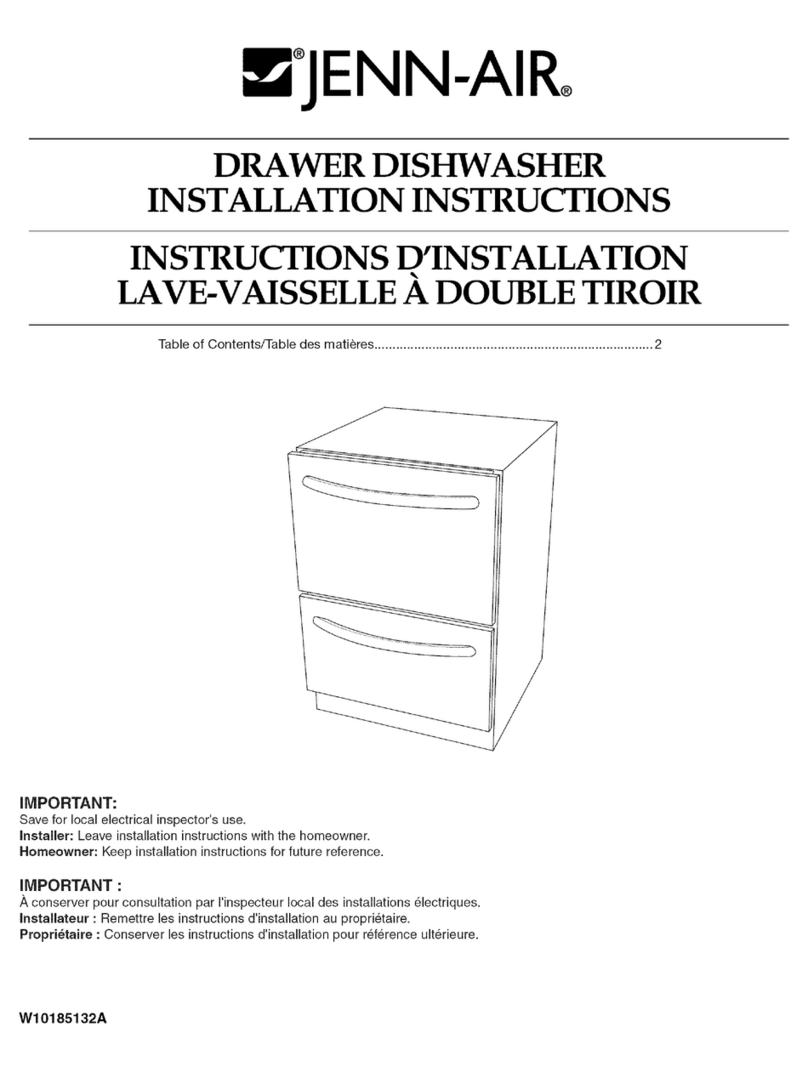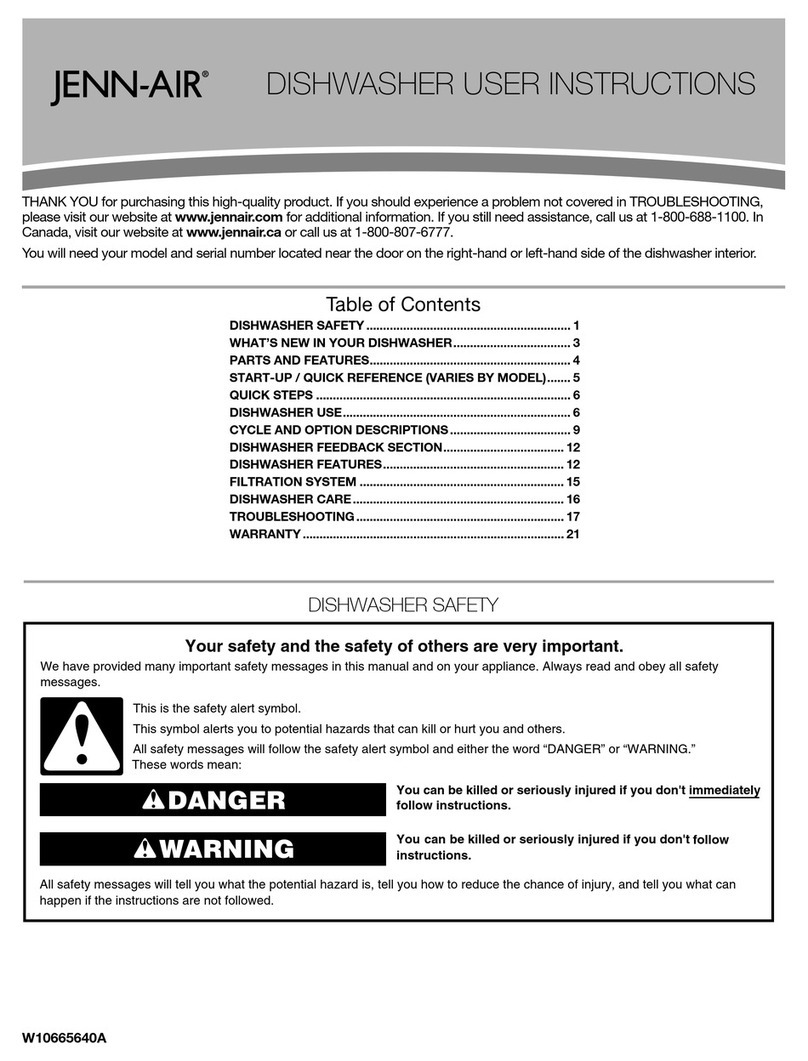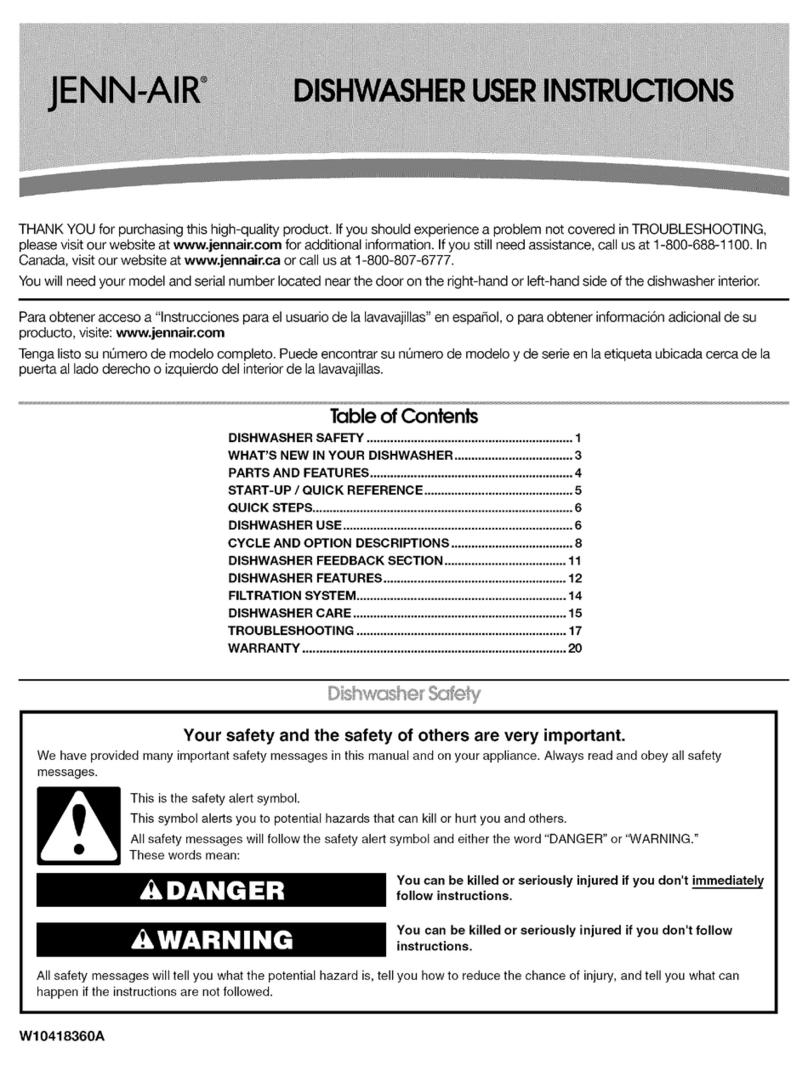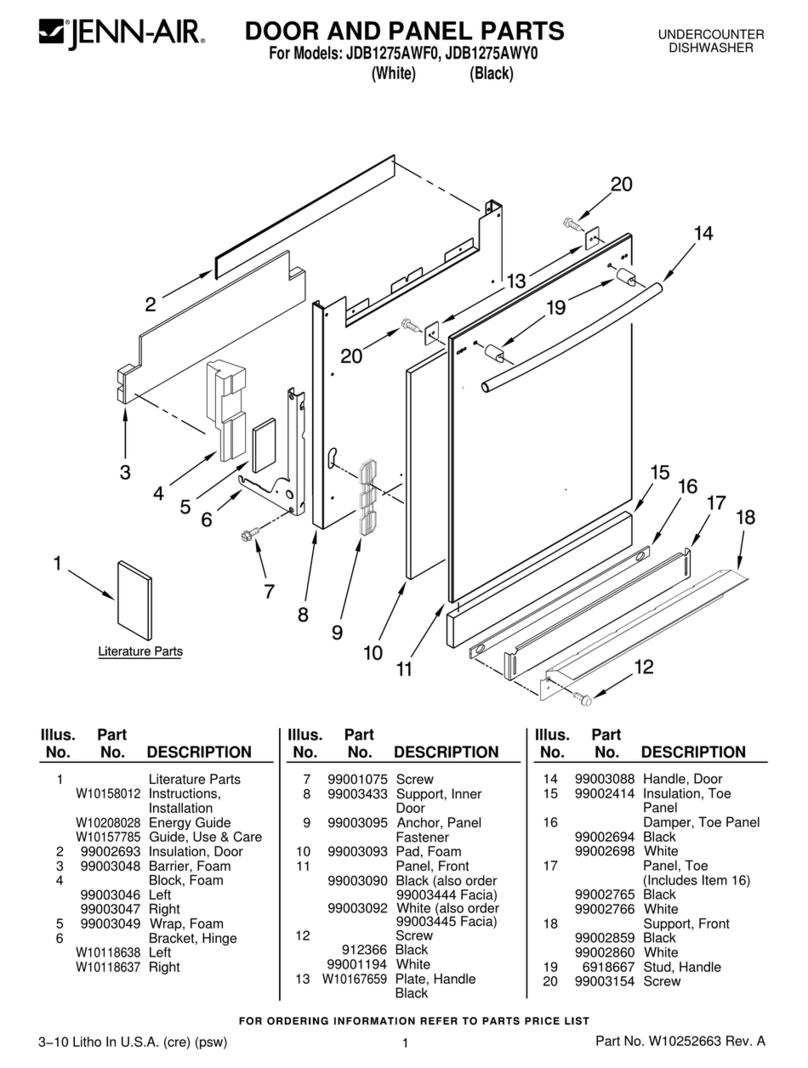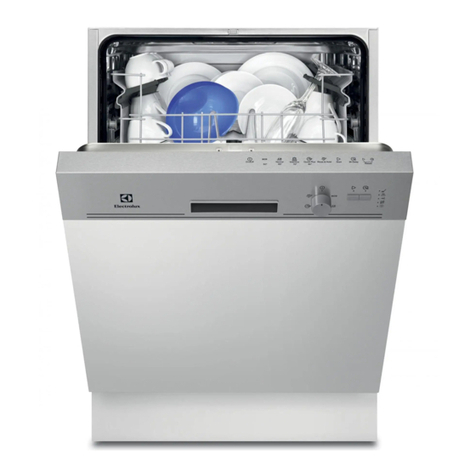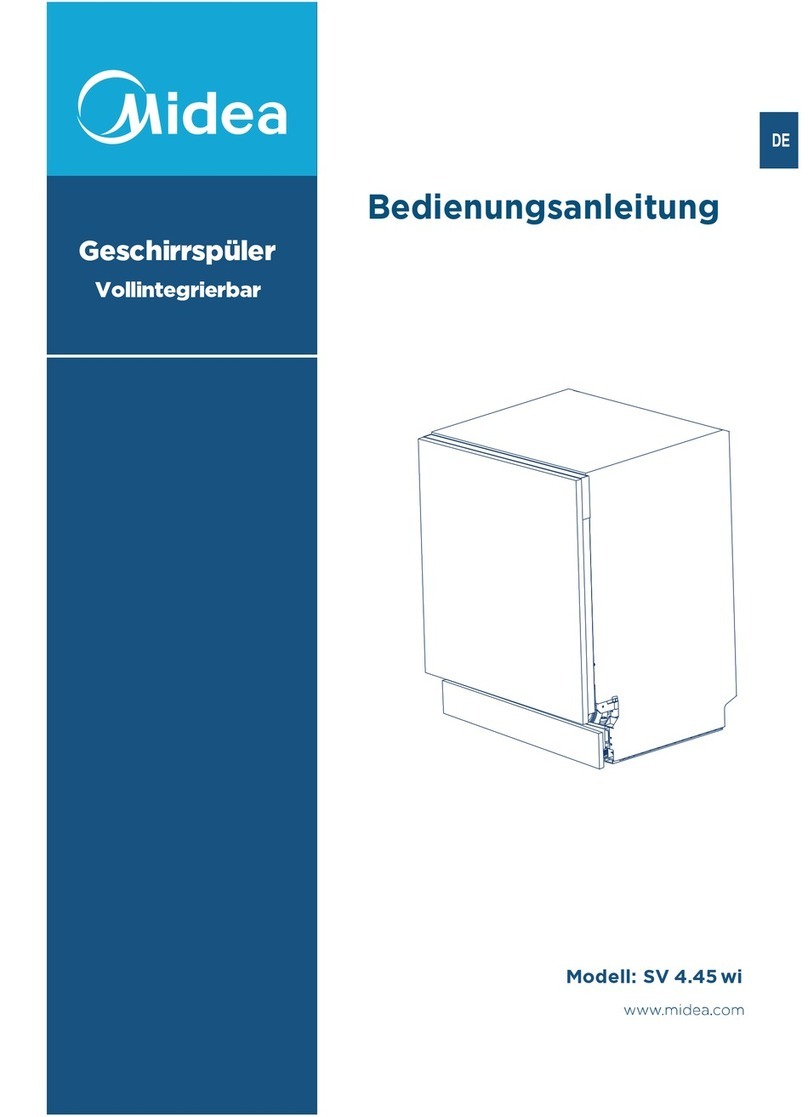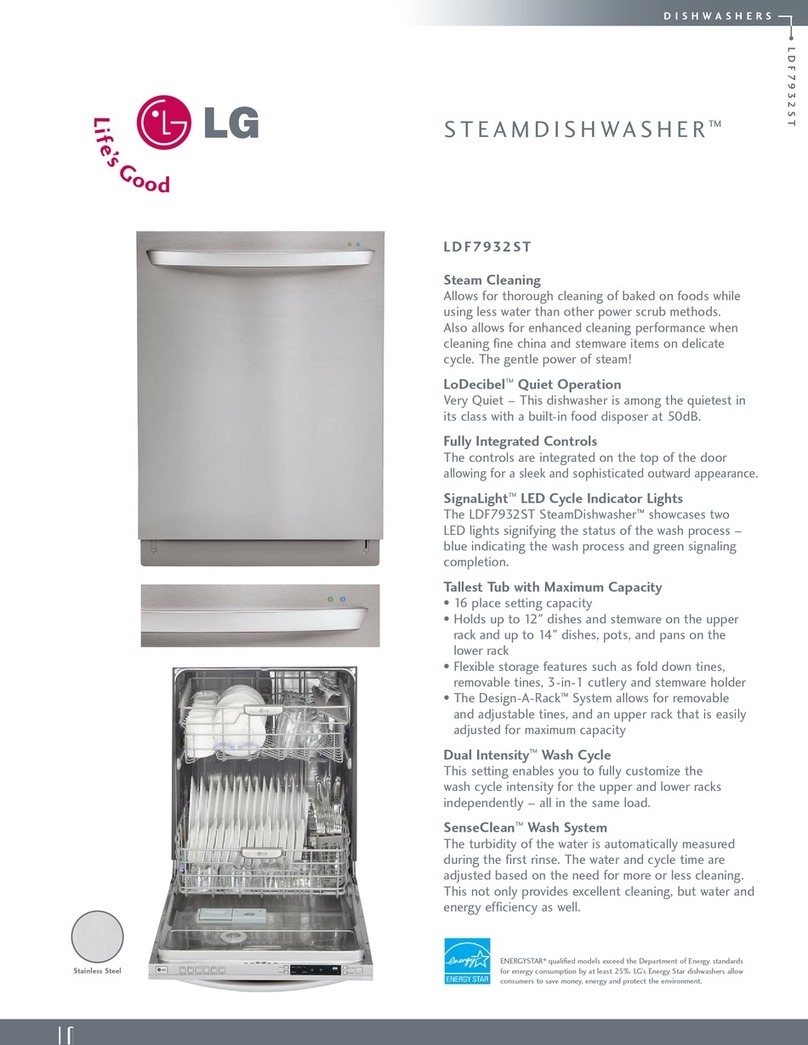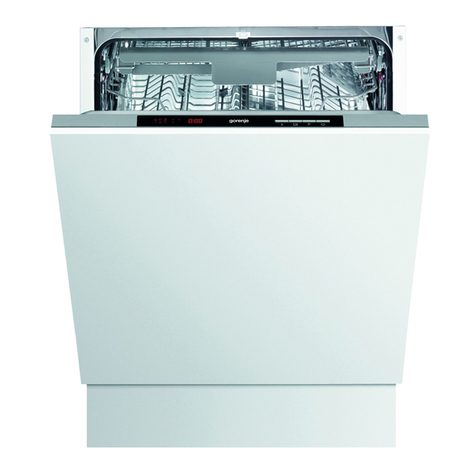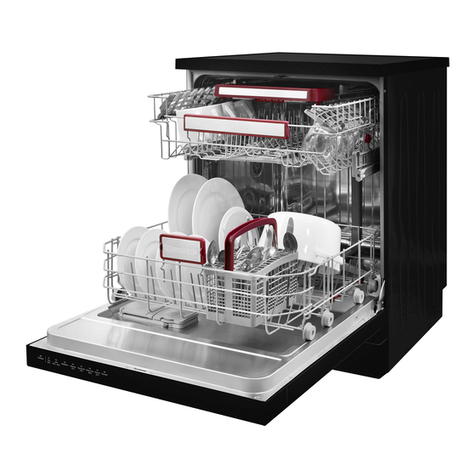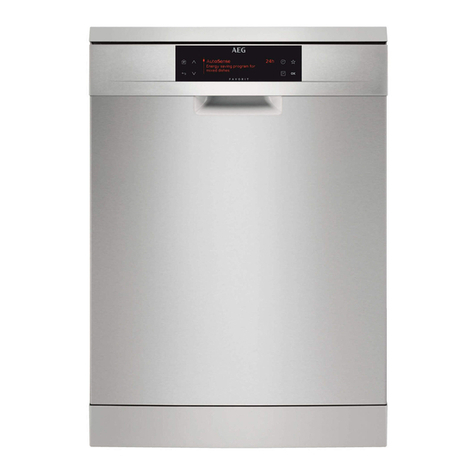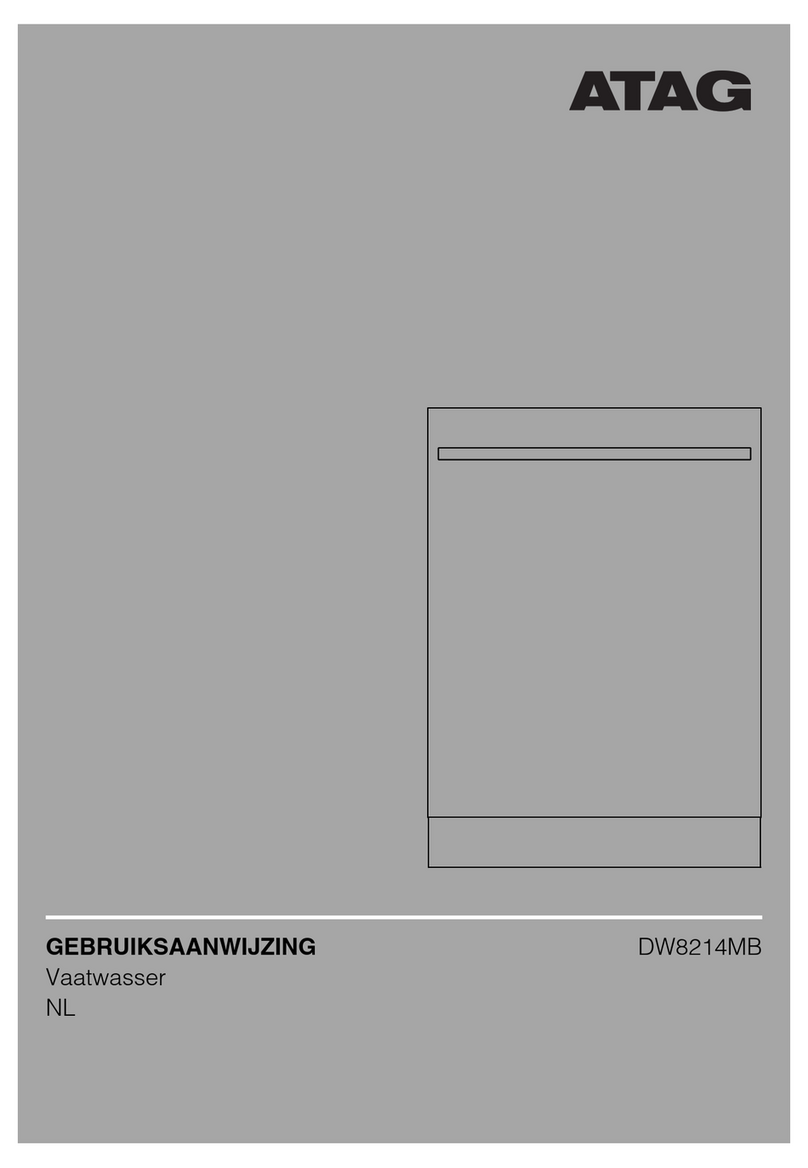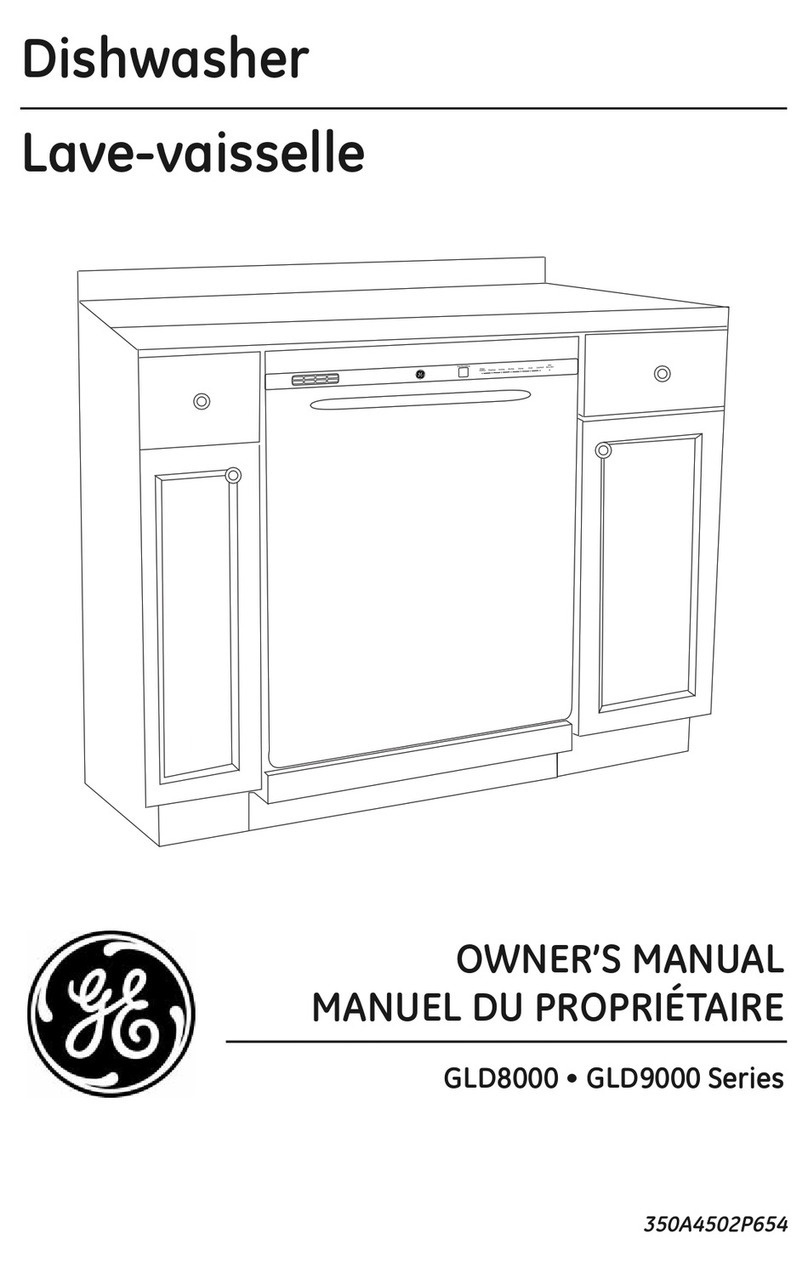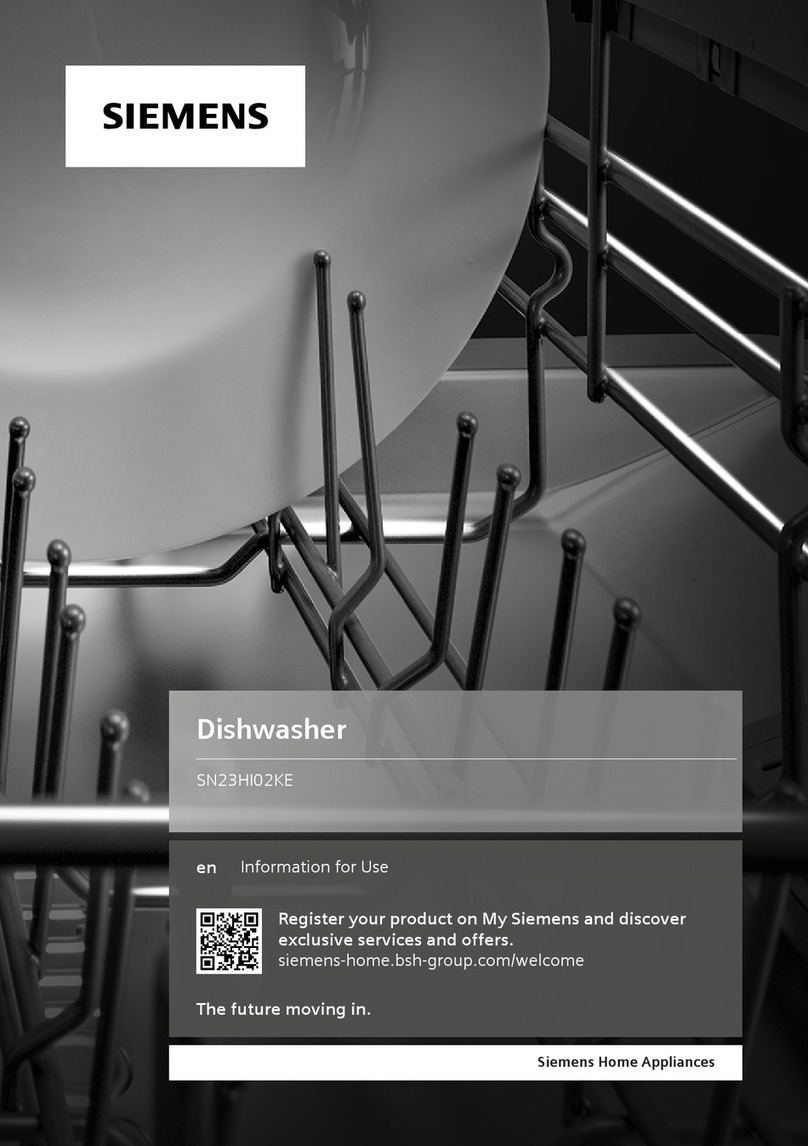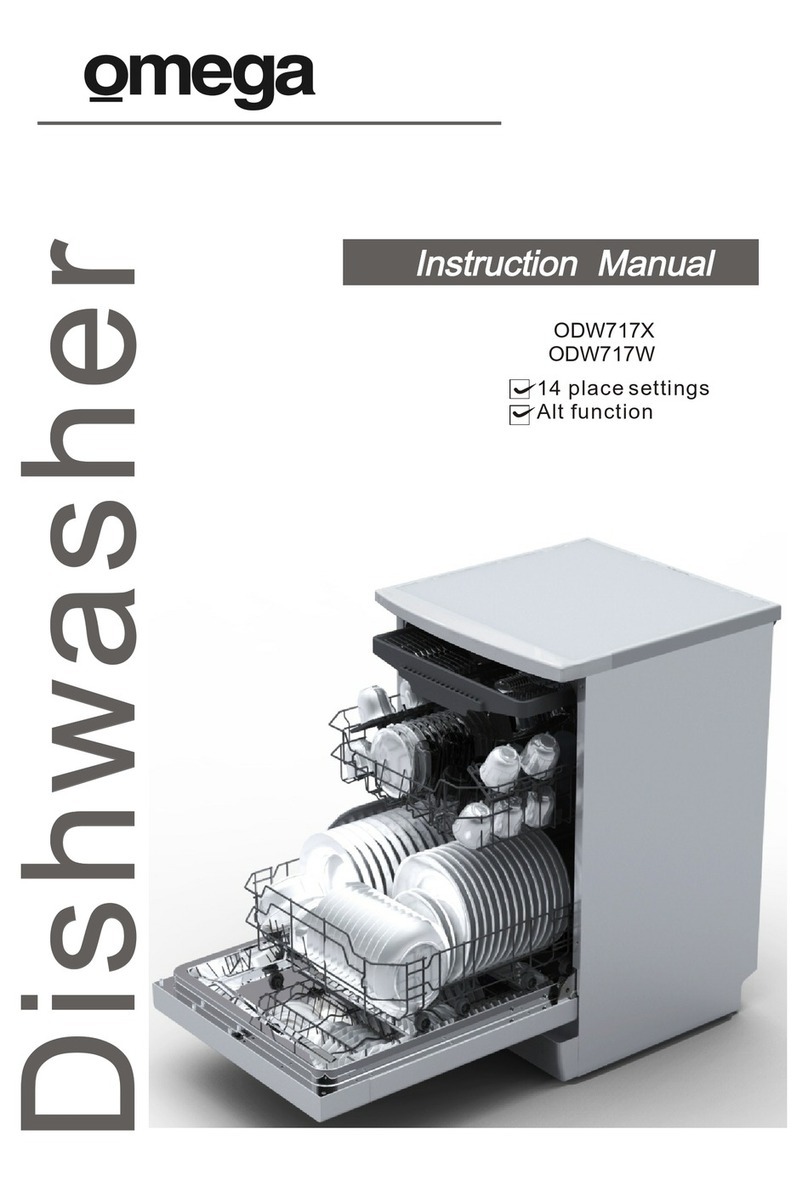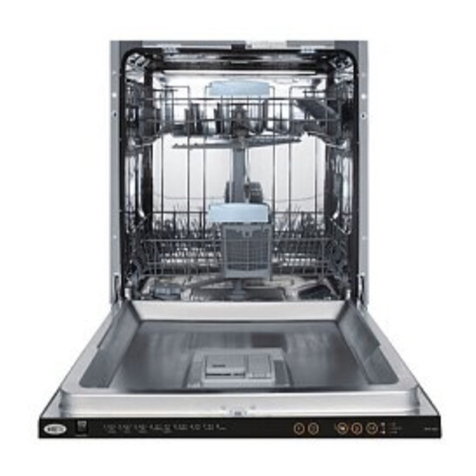WaterTemperature Help preventspotting How to choose and use
Control System with a rinse agent, the right detergent.
To get dishes clean anddry you A rinse agent makes water flowFirst, use only powder or liquid
needhot water. To help you get off dishes quicker than usual.This detergents specifically made for
water of the proper temperature, lessens water spotting. Makes use in dishwashers. Other types
your dishwasher has a water heating drying faster, too. will cause oversudsing.
feature that automatically senses For best dishwashing performance, Second, check the phosphate
the temperature of the water in the use of a rinse agent is recommended, content. Phosphate helps prevent
wash cycle and heats it, if necessary,
to the proper temperature. ThisRinse agents come in either liquid hard-water materials from forming
water heating feature may allow or solid form. Your dishwasher's spots or film on your dishes. If
you to turn down your household dispenser uses the liquid form. your water is hard (7 grains or
more), your detergent has to work
water heater and save energy if Here's how to fill the rinse agent harder. Detergents with a higher
you're willing to let the dishwasher dispenser. Unscrew the cap. Add phosphate level will probably work
run a little longer while it heats the liquid rinse agent until itjust better. If the phosphate content is
water to the proper temperature, reaches the bottom of the lip inside low (8.7% or less), you'll have to
For good washing and drying, the the dispenser opening. Replace the use extra detergent with hard water.
entering water must be at least cap. The dispenser automatically
120°F. To prevent dish damage, releases the rinse agent into the Your waterdepartment can tell
inlet water should not exceed 150°E final rinse water, youhowhardyour water is. So
How to test water temperature: Ifyou accidentallyspill: Wipecan your Extension Agent. Or your
Check your water temperaturewith upthe rinseagent witha damparea's water softener company. Just
a candy ormeat thermometer. Turn cloth. Don't leave the spill in the call and ask themhowmany "grains
on thehot water faucet nearest the dishwasher. It can keep yourof hardness" thereare in your water.
dishwasher. Put the thermometer detergent from working.How muchdetergent should you
ina glass and letthe water run use? That depends. Isyour water
continuously intothe glass until the "hard"or "soft"?With hardwater,
temperature stops rising.Ifthe you needextra detergent to get
water temperature is below 120°E, _ dishes clean. With soft water, you
adjust your water heater, need less detergent.
Helpful hints:If outside Too much detergent with soft water
temperatures are unusually low, or not only wastes money, it can be
if your water travels a long distance harmful. It can cause a permanent
from heater to dishwasher, you may cloudiness of glassware, called
need to set your heater's thermostat "etching." An outside layer of glass
up. If you have not used hot water Your dishwasher's rinse agent is etched away! But why take a
for some time, the water in the dispenser holds 4 V, ounces. This chance when it's easy to find out
pipes will be cold. Turn on the hot should last about 3 months. Fill the hardness of your water.
water faucet at the sink and allow it as needed. Do not overfill.
to run until the water is hot. Then Keep your detergent fresh and
start the dishwasher. If you've dry. Under the sink is not a good
recentlydone laundryor run hot place to store detergent. Too much
water for showers, give your water moisture. Don't put powder detergent
heater time to recover before into the dispenser until you're
operating the dishwasher, ready to wash dishes, either. (It
Won't be fresh OR dry.)
If your powder detergent gets old
or lumpy, throw it away. It won't
wash well. Old detergent loses its
power. Lumpy detergent often
won't dissolve.
If you use a liquid dishwasher
detergent, these precautions are not
necessary because liquid detergents
don't "lump" as they age or come
in contact with water.
